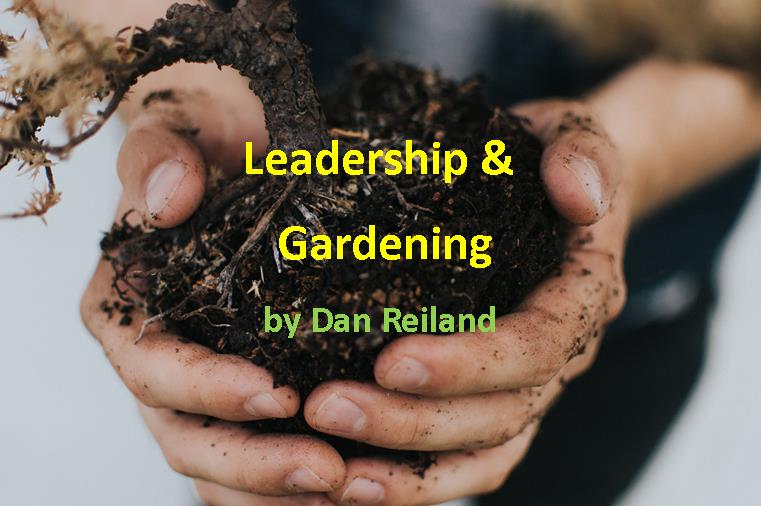Leadership and Gardening
Pastor and ministry coach, Dan Reiland, says there are important lessons to be learned in the garden about leadership.
 My brother Lan is the one in the family with a green thumb. He and his wife Stacey live in Southern California, and their yard is a registered wildlife habitat. When he first told me, I thought, that’s no big deal. We may not be registered, but my house is a wildlife habitat with teenagers of all shapes and sizes running loose. Seriously, it’s quite an effort to be registered. He had to have certain plants, in certain places that provide very specific food or cover for defined wildlife species. Lan recently told me that when the basil in his garden goes to seed his yard fills with beautiful “lesser Goldfinches.” Cool.
My brother Lan is the one in the family with a green thumb. He and his wife Stacey live in Southern California, and their yard is a registered wildlife habitat. When he first told me, I thought, that’s no big deal. We may not be registered, but my house is a wildlife habitat with teenagers of all shapes and sizes running loose. Seriously, it’s quite an effort to be registered. He had to have certain plants, in certain places that provide very specific food or cover for defined wildlife species. Lan recently told me that when the basil in his garden goes to seed his yard fills with beautiful “lesser Goldfinches.” Cool.
As for me, if you can plant it, I can kill it. Nonetheless, I do invest time and energy to a nice looking yard. Actually, I’m sort of an existential gardener. I’ve hired a landscaper, consequently, “I pay therefore I am.”
When we talk Lan loves to talk gardening and I love to talk leadership. And believe it or not there is a connection. Below are four insights I believe will be helpful to you from a slightly creative angle.
You cannot make mechanical or synthetic what was meant to be natural, and obtain the same results.
There is something divinely creative about life producing life, and there is something patently synthetic about that which is man made. I’m not remotely qualified to use genetic engineering even for the sake of illustration. So let’s stick to something less complicated, like tomatoes or apples. There is an undisputable difference between the taste, texture, and touch of a tomato you grow in your own garden and one that is grown (engineered) in a hot house. The difference between pesticides, super-fertilizers, and artificial lighting; and how you garden using natural methods is undeniable. My wife Patti buys organic apples. They don’t look perfect, nor are they shiny (no wax coating to catch your attention), and, they are usually smaller than apples grown “professionally.” But when you bite into one, they literally burst with flavor, and catch your taste buds by surprise.
The best leadership is natural, not synthetic. Many of us can spot a leader that lacks authenticity a mile away. For those that can’t, they still sense something isn’t quite as it should be.
Synthetic leadership is saying the right things to the right people at the right times, but never really connecting at a heart level with any of it. At a quick glance it still looks like an apple, but when you take a bite, it just doesn’t taste the same.
Synthetic or mechanical leadership is based on a formula, and carries a certain degree of lifelessness. It may be executed by highly intelligent leaders, but it doesn’t move people. It is more science than art, and it’s based on position not influence.
Category: Ministry, Spring 2017


